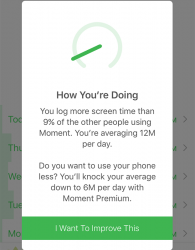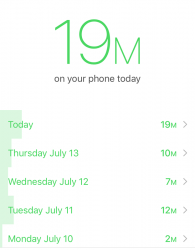Open source software - root of all evil?
Saturday, July 22. 2017
In Harward Business Review, a buffoon called Joshua Gans wrote an article Could Open-Source Code Make Our Y2K Fears Finally Come True?, which I recommend everybody to read.
In case of TL;DR, I'll post a totally inappropriate summary of the article here, with words and sentences taken out-of-context to make my point. So here goes:
Recent workshop organized by the Ford and Sloan Foundations, showed that Y2K-type concerns are far from over.
The base of all this is open-source code.
The Network Time Protocol, or NTP is invented by David Mills. It’s not stable. The entire NTP relies on the sole effort of a 61-year-old Harlan Stenn who is working on a shoestring budget and has pretty much volunteered his own time for the last 30 years.
Also Azer Koçulu "broke" entire Internet (yes, all of it, the entire thing!) by removing npm-package left-pad from Github.
Yup. Sounds pretty bad. Based on that, a second Y2K is going to hit us any time soon! ![]() Also, I think that because given the above proof, all software should be as closed source as possible!
Also, I think that because given the above proof, all software should be as closed source as possible! ![]() NOOOOOOT!
NOOOOOOT!
Questions
Now, I'm asking you, yes you!, the reader of this blog post, to think this a bit.
To help your thinking, I'm posting some open questions which you must try to come out with some kind of answer:
- Only open-source software has flaws. True or false?
- Is it possible for any flaw/flaws in open-source software to be repaired/fixed/mended by anybody else than the original author?
- If using any piece of software to fulfill a specific task, is it possible to switch it for any suitable alternative piece of software performing similar or same task?
- Is it mandatory for all open-source software authors to be acknowledged in an appropriate Wikipedia-page to keep jealous pundits from ridiculing them in an article missing most of the facts?
- Must all open-source projects have a huge monetary budget?
- Is it mandatory for any self-respecting open-source project to fulfill any incoming user requests immediately?
- ... even if there are no known bugs and all the necessary functionality has existed in the project for past 30 years and all the new features are mostly nice-to-have?
- Does using any open-source software open your entire ICT-infrastucture to a risk of catastrophic cascading failure when an angry author chooses to remove all his work at that point from the known universe?
- Y2K was the most horrific event in the entire history of computer software. True or false?
- Is Mr. Joshua Glans an idiot, or is he just faking it?
(the answers are on the other side of this paper)
Moment - Tracking your mobile phone usage
Saturday, July 15. 2017
How I mostly use my mobile phone is like a mobile pocket computer. When I get back home I mostly just hang it to a wall:

However, that's not how majority of the people do it. They spend 24/7 with the phone talking, messaging or just watching TV from it. In Tunnelbana everybody else except me is like this:

In today's world bullshit is just bullshit and hard facts are hard facts (which can be alleged to be fake news). So, I installed an app called Moment. See https://inthemoment.io/ for details about the app. The idea is, that it tracks how much I use my phone and then I can view my screen time.
Yesterday Moment gave me a notification to inform, that it had something to tell me:

The text reads:
You log more screen time than 9% of the other people using Moment. You're averaging 12M per day.
... right. If my usage is at lower 9% of entire user population and if my average screen time is 12 minutes per day, that's not much! Looks like the app is designed only with heavy-duty phone users in mind. ![]()
For the record, my stats as seen by Moment are:

Not that bad. But then again, isn't that what every addict says? ![]()

